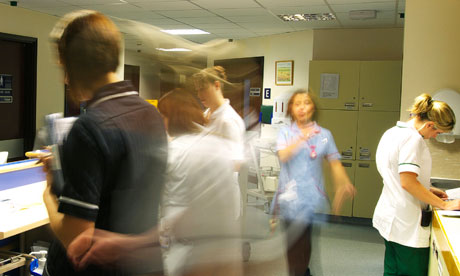NHS staff are on the frontlines of the coronavirus pandemic – and therefore at the forefront of the public imagination. Whilst the success of initiatives such as Clap for our Carers seems to suggest widespread support and respect for health workers, there have been reports of physical and verbal abuse against NHS staff across the country. These range from racial abuse, to staff being spat on, to doctors being punched whilst treating COVID-19 patients.
The assault of NHS workers is far from a new phenomenon. The most recent annual NHS staff survey revealed that 14.5% of staff had experienced physical violence from patients, their relatives or the public – that means an average of over 200 violent attacks a day. But where does this hostility towards those risking their own health to save lives come from?
Some attacks seem to be motivated by fear; since lockdown measures have been put into place, community nurses have reported being called “disease spreaders” whilst attempting to do their jobs. Receiving treatment for a disease as potentially deadly as COVID-19 would undoubtedly be a harrowing experience, with the stress bringing out the worst in some. But directing this stress at health workers, the very people working to combat the virus, makes little sense. Instead, it suggests a lack of respect for the essential work performed by healthcare workers.
Rather than being viewed as humans executing a difficult and often emotionally harrowing job under pressure, some seem to view NHS workers as simply a cog within the sprawling healthcare system. They become invisible, taken for granted until needed. Anger at the system – for example, misplaced anger that allowing nurses to continue carefully performing their much-needed duties means there are “disease spreaders” in the community (a grossly inaccurate view – the nurses themselves are at the greatest risk of infection) – is directed towards individual workers.
This view does not have to manifest itself through direct violence. The continuous underfunding of the NHS, meaning workers are increasingly underpaid and overworked, also suggests a blindness to the fact that healthcare is provided by people, not automatons. This does not necessarily mean healthcare is viewed as non-essential. In fact, it can sometimes seem that healthcare is viewed as so essential that is taken for granted that someone must provide it, and thus the person who eventually ends up providing it loses their individuality. They are nominally respected for filling the position but offered little renumeration or empathy for the actual effort their job requires.
It is possible that in the aftermath of the pandemic, this could change. However, it is far from guaranteed. When asked if nurses deserved to be paid more in the future, Matt Hancock, the health secretary, replied that “Everybody wants to support our nurses right now and I’m sure there will be a time to debate things like that. At the moment, the thing we’re working on is how to get through this”. Whilst this does seem to express support for the notion of increased pay, there is no concrete commitment even to a review of wages in the future. The work of nurses is seen as so essential that their material needs must be put on hold for the greater good of the nation.
This line of thought seems to lead towards a far more positive perception of NHS workers that still ignores their humanity. Health workers are placed on a pedestal, their work viewed as selfless and invaluable. Yet their requests for better working conditions or better pay are ignored. Support is offered only on the terms of those offering support. This also allows for the deaths of health workers to be glorified as noble and heroic, without acknowledging the fact that many could be prevented if hospitals could afford and obtain the correct protective equipment.
The pandemic has not created these perceptions, it has simply brought them more starkly into focus. However, it also provides the opportunity for them to change. Daily briefings from Downing Street see key members of the cabinet speaking alongside medical experts that many would never have heard of before the pandemic. After one of these briefings launched a drive to recruit volunteers to help the NHS, over 500,000 people signed up within a day.
For vast swathes of the population, health workers are no longer faceless and invisible, nor is their work taken for granted. But we are in extraordinary times. A true shift in the perception of healthcare workers would be accompanied by a significant improvement in pay and working conditions. Professing support while failing to implement or support such measures simply allows the belittling of healthcare work to continue in a new, ‘progressive’ guise.
For Cherwell, maintaining editorial independence is vital. We are run entirely by and for students. To ensure independence, we receive no funding from the University and are reliant on obtaining other income, such as advertisements. Due to the current global situation, such sources are being limited significantly and we anticipate a tough time ahead – for us and fellow student journalists across the country.
So, if you can, please consider donating. We really appreciate any support you’re able to provide; it’ll all go towards helping with our running costs. Even if you can't support us monetarily, please consider sharing articles with friends, families, colleagues - it all helps!
Thank you!






